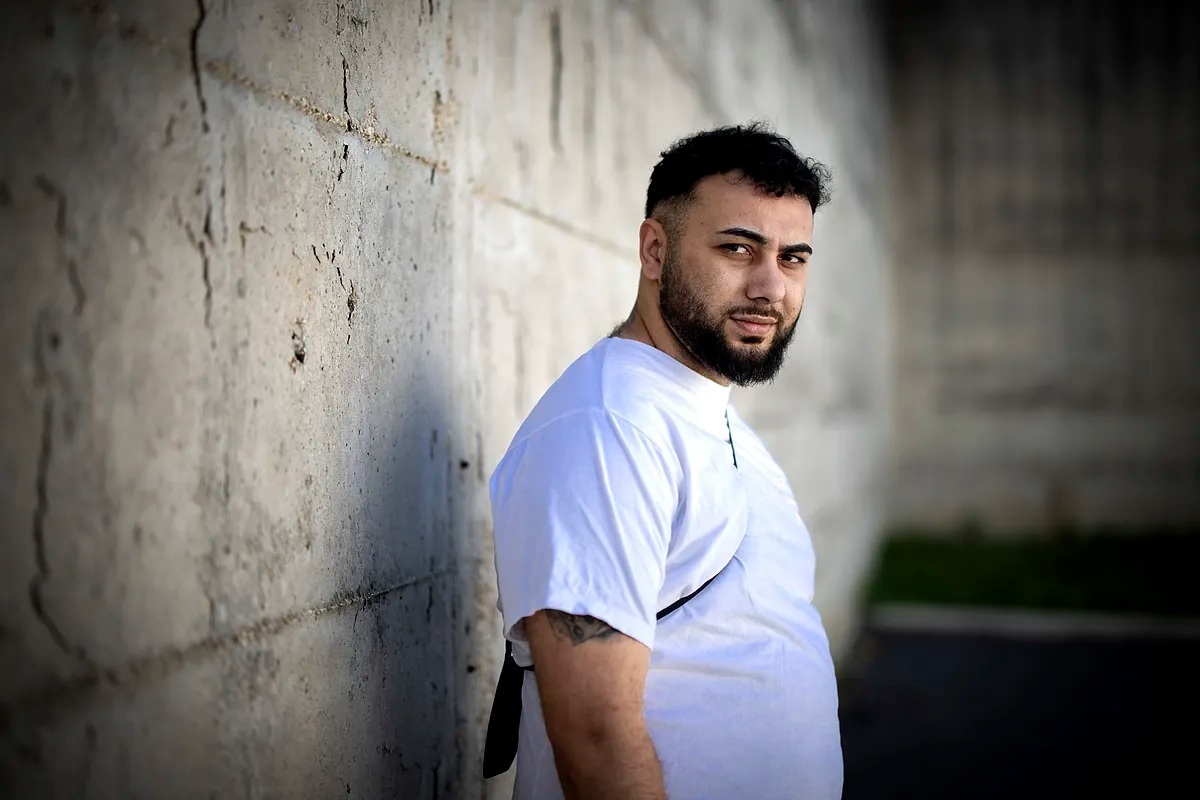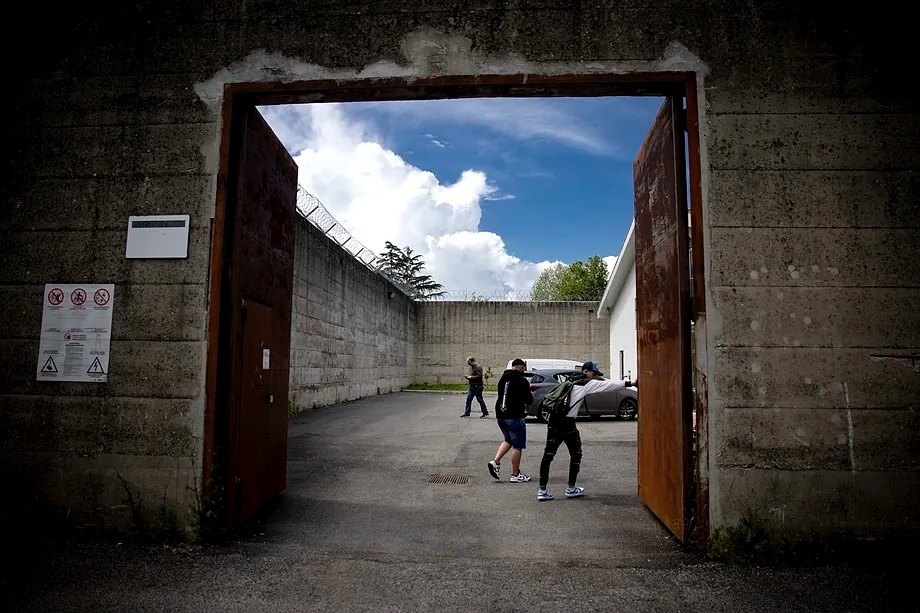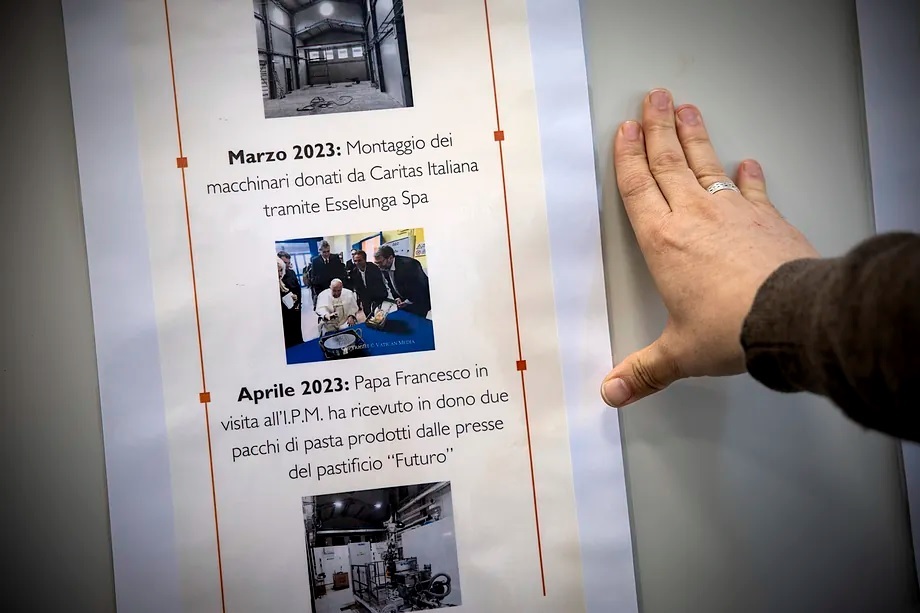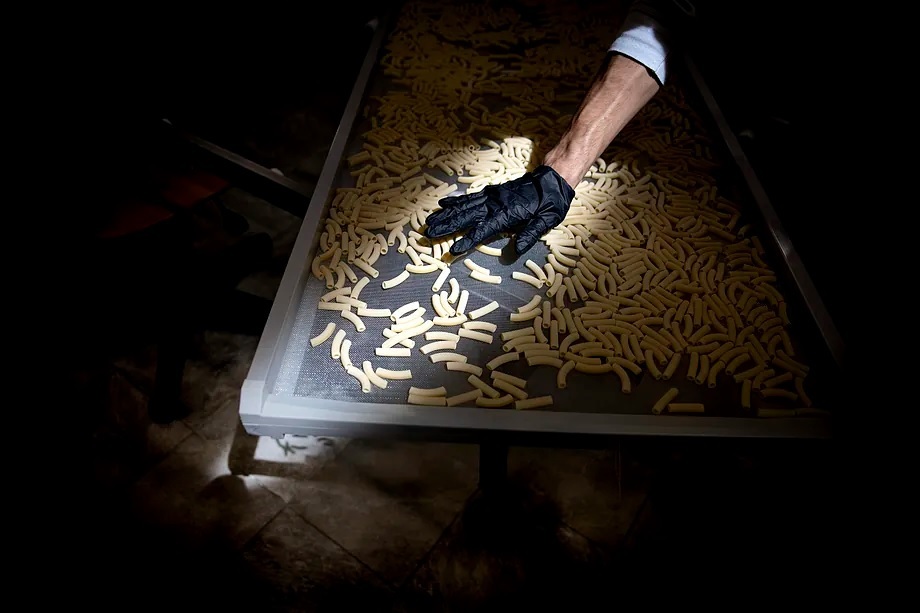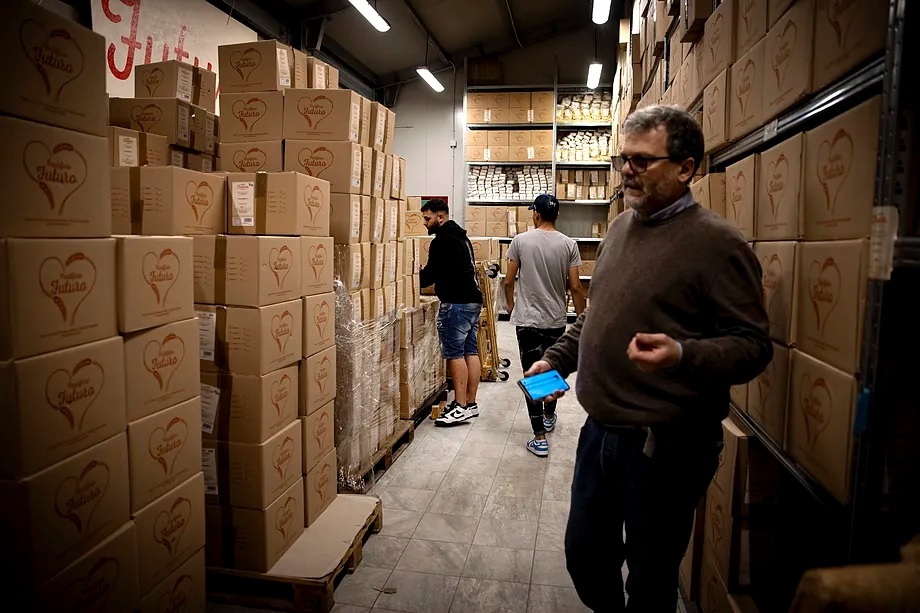It's 2:00 in the afternoon when Alberto and Carmine get out of the car to open the imposing iron gate that separates the outside world from Pastificio Futuro. It's Thursday. There's half an hour left before this small pasta factory's store opens to the public when they meet the reporter and photographer on the narrow road surrounding it. "Are you the Spanish journalists who contacted me?" the first one asks. We nod. "Come in, come in," he replies. "We'll show you around the facilities."
However, this is not just any pasta factory. Not all pasta factories are surrounded by 10-meter-high walls, topped with barbed wire, or located within a juvenile prison complex, employing former inmates to help them with their social and work reintegration and prevent recidivism. Nor do they all have the blessing of Pope Francis, who promoted this social project of the social cooperative Gustolibero Onlus to "give hope to those who need it most."
"It all goes back to March 2013," begins Alberto Mochi Onori, legal representative of Gustolibero Società Cooperativa Sociale Onlus. "Pope Francis was visiting the 'Instituto Penale Maschile e Femminile per Minorenni Casal del Marmo' juvenile prison for the annual Easter foot-washing ceremony with young inmates. At the end of the visit, he delivered a brief homily, proclaiming: 'Do not let yourselves be robbed of hope!'," he tells EL MUNDO. The Pontiff was accompanied on that visit by the then prison chaplain, Gaetano Greco, "to whom he said: 'We have to do something for these kids'." And thus, from this premise, feeding the hope of a better tomorrow was born.
"The Italian Episcopal Conference and Pope Francis provided the initial funding," Alberto explains at the punto vendita entrance, where they receive customers for four hours, from Monday to Friday. The rest of the funding, he explains, "came from the Italian State, which granted us a non-repayable sum with the condition that the idea worked." A lot of money was needed because the building was designed to be 500 square meters.
The project plan - which also had the support of the Casal del Marmo Directorate, under the Juvenile and Community Justice Department - was presented in January 2015, and in early 2022, Father Greco blessed the structure of the building, which still forms part of the prison complex but now with its own entrance. "It was a former prison dependency that was not used because the kids would escape from it. So, they demolished what was there and built this building, surrounded by its own walls, so it has no direct connection to the prison," explains the Gustolibero representative.
Crossing the threshold of the building, we find ourselves surrounded by package after package of pasta. Behind the counter, a portrait of Father Greco silently observes. Deceased in May 2024, his image seems to guard the place: the factory he helped build with faith, intuition, and the firm purpose of responding to the Pope's call. Against one of the walls, a shelf displays more packages of maccheroni, calamarata, and mezze maniche, next to a photograph in which Pope Francis blesses a tray of pasta. It is the only shelf that holds that image, so it is never displayed in other stores.
"Ten years after giving impetus to this project, the Pope returned to Casal del Marmo in April 2023 for a new foot-washing ceremony. He did not come down to the factory, which was already operational, so we brought up a tray of caserecce just out of the production line for him to bless," Alberto proudly recounts.
In the laboratory, Pastificio Futuro produces ten varieties of pasta with a press capable of producing up to 220 kilos per cycle and four dryers. "The more we can increase production, the more young people we can employ, and we can also adjust prices more because pasta is cheap to make," explains Alberto as he guides us through the different rooms of the building.
Behind the store is a small meeting room, where meetings with workers are held and visits from local schools are received. At the back, to the right, is the laboratory, where they can produce between one or two tons per day. Following the clockwise route, you reach the packaging room - "everything is done manually" - and just before returning to the store, the warehouse, where boxes are stacked from floor to ceiling, ready to be sent to "online customers in Italy, France, and even Spain, as well as to restaurants or supermarkets in the metropolitan area of Rome."
Carmine has been at Pastificio Futuro for just over a year. He is 23 years old - unlike in Spain, in Italy these prisons accommodate young people up to 25 years old if they entered when they were under 18 - and is one of the twenty former inmates of Casal del Marmo currently working at the factory. When he decided to join the cooperative, his sentence was commuted, and now he lives under house arrest.
"The profile of those who come here is usually people who don't have their head in the right place. If they don't have an alternative, they fall back," he laments. "But when the kids come here, they come with one mindset and leave with another. One of wanting to work and get organized. The project works very well," he says while organizing some boxes. "Working gives you hope," he adds, echoing the Pontiff's exhortation."
Although the young man is far from the hustle and bustle of the Vatican, where tourists, faithful, and journalists are crowding these days to bid farewell to Pope Francis, the Pontiff's death has deeply affected him. "I was in the car with my girlfriend when she told me. I stopped and was blocked for 10 minutes because I couldn't believe it," he recounts. "Since I had seen that he had reappeared in public in the previous days, I was not expecting it at all."
Both Alberto and Carmine are saddened that the Holy Father never got to see in person the project he himself promoted. "I felt very sad because the Pope has done a lot for us," the former shares, to which the young man adds: "He was the first to promote this initiative and, as he helped us so much, I feel sorry that he did not see what we have become. I would have liked him to see it."
After buying several packages of pasta as souvenirs, we set off back to the train station along an endless road. Halfway there, a juvenile prison officer, who had just finished his shift, stopped and offered to drive us there in his van. "The pasta is very good," he says as soon as he sees our plastic bags. We take the opportunity to ask him what he thinks of the project.
"The pasta is a bit more expensive than usual because it is not a mass production factory and they use good quality flour from here [Italy]," she begins. "But people are willing to pay for it because they see it has a social impact," she emphasizes. "Pastificio Futuro is essential because it helps young people keep their hands busy, but above all, their minds."
